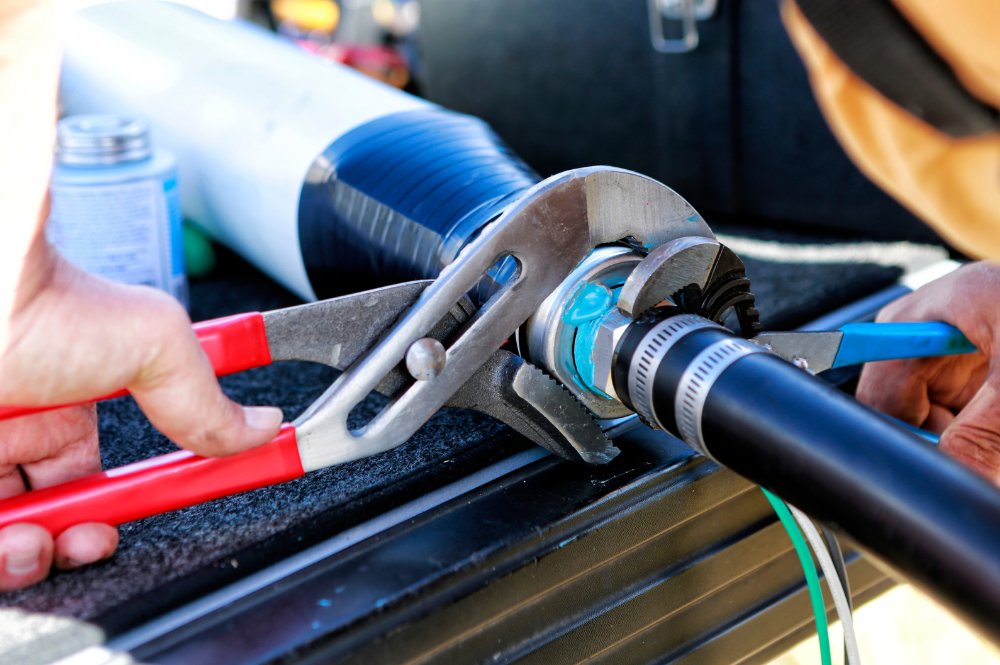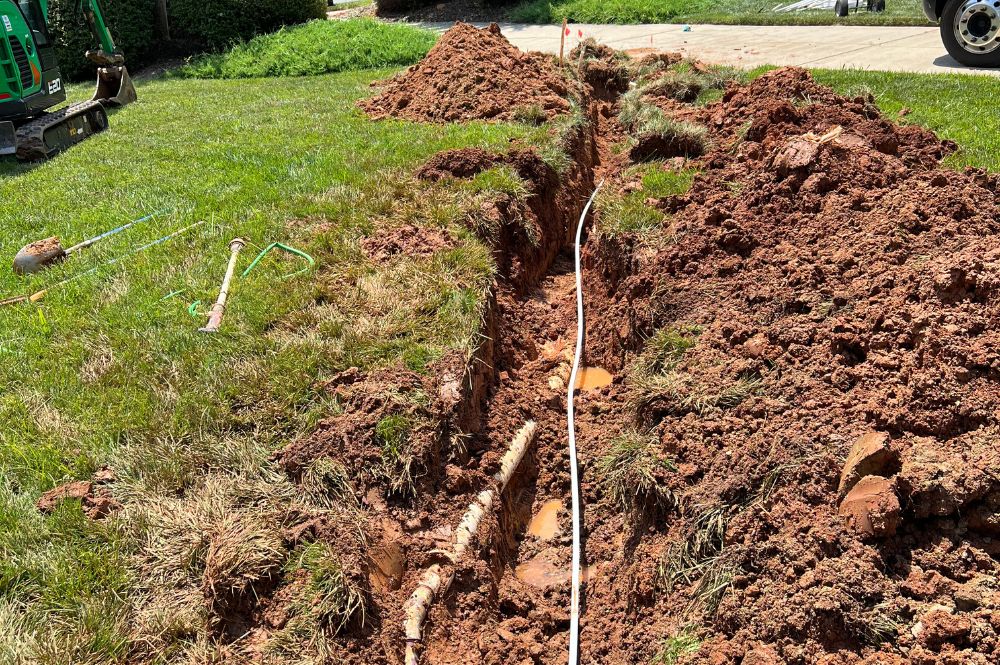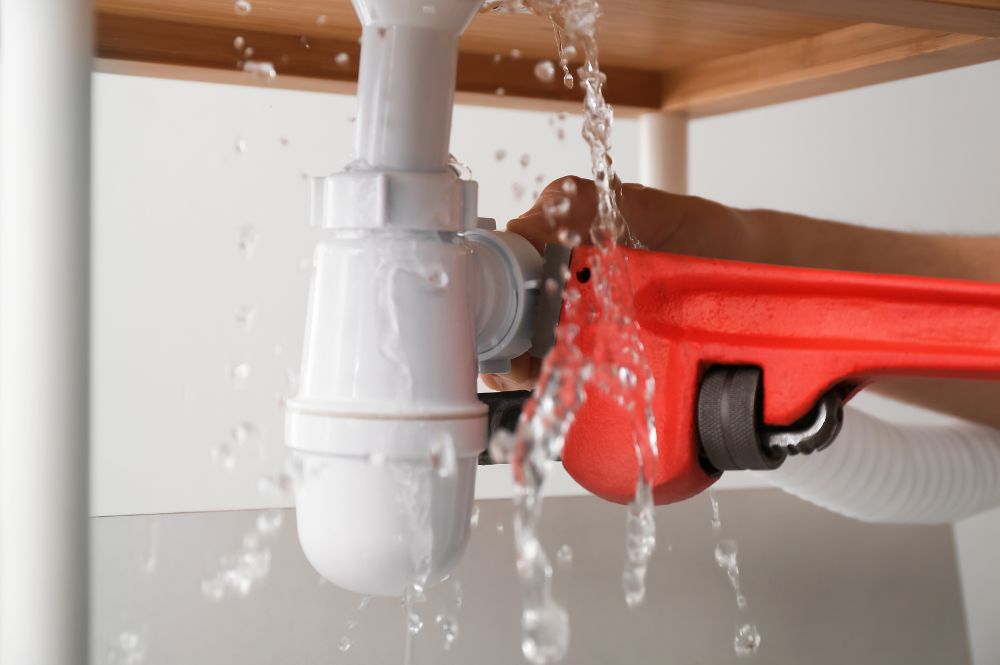Water quietly slipping through your walls, soaking into your foundation, and driving up your utility bill—it’s the kind of household nightmare that goes unnoticed until it’s too late. Hidden plumbing leaks can cause massive structural damage, mold growth, and costly repairs if not caught early. The good news? Modern leak detection services make finding these silent culprits easier than ever.
If you’ve noticed an unexplained spike in your water bill or mysterious damp spots around your home, you could have a hidden leak lurking in your plumbing system. Understanding how professionals track down these elusive problems and why early intervention is crucial can save you thousands in unexpected damage.
Warning Signs: How to Spot a Hidden Leak Before It Gets Worse
Unlike a dripping faucet or a burst pipe, hidden plumbing leaks don’t announce themselves. They silently waste water, damage walls, and create an ideal breeding ground for mold. Keep an eye out for these telltale indicators:
- Unexplained Water Bill Increases: If your monthly usage remains steady but your bill climbs, a leak could be siphoning away gallons of water undetected.
- Musty Odors and Mold Growth: Mold thrives in damp environments. If you notice a persistent musty smell or see mold in unusual places, moisture from a hidden leak may be the cause.
- Discolored Ceilings or Walls: Brown stains, bubbling paint, or warped drywall could indicate water slowly seeping through your home’s structure.
- Reduced Water Pressure: A sudden drop in pressure when using sinks or showers may mean a pipe has a slow, steady leak.
- The Sound of Running Water: If you hear trickling water when everything is turned off, it’s worth investigating further.
Ignoring these warning signs won’t make them disappear. The sooner you take action, the more likely you are to prevent water damage before it spirals into an expensive disaster.
Precision Leak Detection: How Experts Find What You Can’t See
When a leak hides behind walls, under floors, or within your home’s foundation, pinpointing its exact location requires specialized tools and expertise. Professional leak detection services use advanced technology to uncover problems without unnecessary demolition.
- Meter Testing: One of the simplest ways to identify hidden plumbing leaks is by shutting off all water use and checking the meter. If it’s still running, water is escaping somewhere.
- Infrared Cameras: Thermal imaging technology detects temperature differences caused by moisture accumulation, revealing leaks hidden within walls or ceilings.
- Acoustic Listening Devices: Using sensitive microphones, plumbers can hear the distinct sound of running water within pipes, even if it’s beneath concrete or underground.
- Video Pipe Inspections: Small waterproof cameras are inserted into pipes to provide real-time visuals of cracks, breaks, or corrosion inside your plumbing system.
- Dye Testing: By adding a special dye to the system, plumbers can trace exactly where water is escaping, helping them locate tricky leaks with precision.
These techniques allow professionals to detect problems without tearing apart your walls, ensuring the fastest, least invasive fix possible.
Sealing the Problem: Effective Solutions for Fixing Leaks
Once the leak is found, the right repair method depends on its severity and location. Some solutions are quick and straightforward, while others may require more extensive work.
- Pipe Repairs & Replacements: Small cracks or pinhole leaks can often be patched, but severely damaged pipes may need partial or full replacement.
- Sealing & Epoxy Coatings: In some cases, applying a strong epoxy or specialized sealant can stop minor leaks without replacing pipes.
- Re-Routing Pipes: If the existing plumbing is heavily compromised, rerouting pipes may be necessary to avoid further leaks in the future.
- Slab Leak Repairs: Leaks beneath the foundation are among the most challenging to address, often requiring tunneling or advanced pipe lining techniques to resolve the issue without excavation.
Whatever the fix, timely action ensures your home remains dry and protected from structural decay.
Why Early Leak Detection Saves You Money and Protects Your Home
Water damage doesn’t happen overnight, but once it takes hold, it spreads rapidly. The cost of ignoring a leak far outweighs the price of early repair.
- Lower Water Bills: A single, slow leak can waste thousands of gallons per year. Fixing it quickly stops unnecessary water loss.
- Prevent Water Damage: Structural deterioration, warped flooring, and rotting wood can all be avoided with proactive maintenance.
- Healthier Indoor Air Quality: Hidden leaks create the perfect environment for mold, which can cause respiratory issues and aggravate allergies.
- Avoiding Emergency Repairs: Minor leaks often escalate into major plumbing failures, leading to costly emergency service calls.
By scheduling routine inspections and responding quickly to warning signs, you can prevent water damage before it turns into a financial headache.
Peace of Mind With Expert Care
Ultimate Plumbing is here to help you detect and resolve leaks before they cause serious damage. Whether you suspect an issue or just want peace of mind, our expert leak detection services can pinpoint the problem quickly. Call us today to schedule an inspection and protect your home from costly water damage!
Frequently Asked Questions
How can I tell if I have a hidden plumbing leak?
Shut off all water sources in your home and check your water meter. If the meter continues to run, you likely have a leak somewhere in your plumbing system.
Are hidden leaks covered by homeowners insurance?
Coverage depends on your policy. Sudden, accidental leaks may be covered, but slow leaks resulting from neglect are often excluded.
Can a hidden leak cause a major increase in my water bill?
Absolutely. Even a small leak can waste hundreds of gallons per month, leading to unexpectedly high bills.
Should I get my plumbing inspected even if I don’t notice a leak?
Yes. Annual plumbing inspections help catch hidden issues early, especially in older homes.
Are some types of pipes more prone to leaks than others?
Yes. Older galvanized steel pipes and corroded copper pipes are more susceptible to leaks compared to modern PEX or PVC piping.




